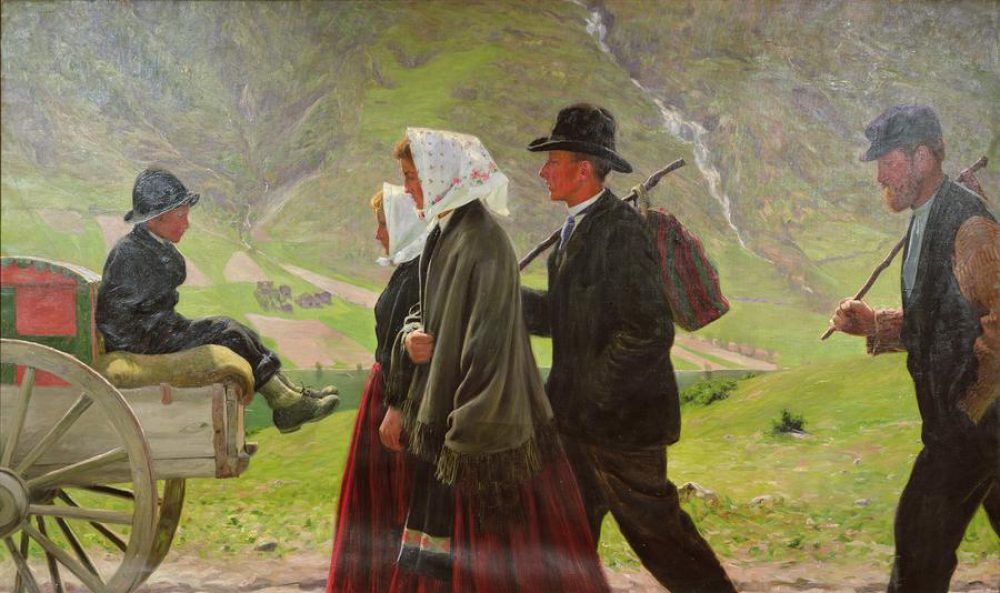On Monday 17 October, the Graduate Workshop was delighted to welcome Dr Stephen Mullen, a post-doctoral researcher at the University of Glasgow. His paper considered Scottish emigration to the Caribbean in the late 18th and early 19th century within its social and economic context. He adopted a transatlantic approach.
Stephen argued that levels of emigration from Scotland to the West Indies increased in the first third of the 19th century. In the absence of Scottish port statistics during this period, precise quantification is problematic but contemporary advertisements from the Glasgow Herald suggest that between 1806 and 1834, 1742 ships made the transatlantic journey from the Clyde to the Caribbean, of which approximately 600 were bound for Jamaica. An approach based on earlier work by Allan Karras and Douglas Hamilton (in relation to the second half of the 18th century), points to between 3000 and 5500 Scottish sojourners travelling to Jamaica alone during this period. Kingston was the most popular port of arrival. In 1774, the planter historian, Edward Long, had estimated that one third of the 18,000 (white) inhabitants of the island were either Scots or descended from Scots, a view endorsed by Lady Nugent a generation later. In 1801, she wrote, “Almost all the agents, attornies [sic], merchants and shopkeepers, are of that country [Scotland] and really do deserve to thrive in this, they are so industrious.”
A Scottish presence on the island was re-in forced by Scottish institutions, notably the Kingston Masonic Lodge of St Andrews, the Presbyterian Kirk (also St Andrews), and, arguably, the use of Scots law in order to secure the repatriation of wealth to the home country. Attempts to establish a Scots Kirk were initially resisted in the Jamaican assembly but evidence of rapid and successful fundraising suggests a broadly based and relatively affluent Scots community within Kingston and other parts of the island. St. Andrews Kirk was opened in 1819. The first three ministers of the Kirk, were educated at Old College in Edinburgh; the third minister, James Wordie, established a  local Sunday school.
local Sunday school.
As Stephen observed, the Scottish emigrant was typically a”sojourner in the sun”: the single young man who had travelled to the West Indies “less in quest of fame than of fortunes” (pace Long) but whose principal motivation was to return to his native land in affluent middle age to enjoy and – when the time was right – transmit his new found wealth. The motive of the sojourner raises the mechanism of repatriation of capital as much inter vivos as post mortem. The example of Andrew Taylor, an upwardly mobile overseer on the York estate in Trelawney, is a case in point. In the 1820s, Taylor’s correspondence provides evidence suggesting that he was making provision for family members in his native land in the event of his not returning to Scotland. Stephen argued that Scottish merchants played a pivotal role in the transmission of wealth. They were able to convey bills of exchange to Scotland and, on the death of a Scots testator, were well placed to act as executors.
How wealthy were these sojourners in the sun? How much wealth did they repatriate? And what was its impact on the Scottish economy? Stephen’s recent work has comprised an analysis of the wills and inventories in Scottish archives. They provide first hand evidence of the nature of repatriation of wealth and the extent of individual fortunes. Of the “super rich” William Rae had a fortune approaching that of William Beckford. Scots law, Stephen argued, provided a means of channelling Scots wealth.
____________
Our next Diaspora Studies Graduate Workshop will take place on Tuesday 1 November at 1 pm in G 16 in the William Robertson Wing of the School of History Classics and Archaeology (Doorway 4)
Sean Murphy of the University of St Andrews investigates the apparent enthusiasm for Scottish literature and Lowland Scots language within the United States. His paper highlights the manner in which Scots forms were seen to set an example for the development of an American English.
Sean’s paper is entitled :
“Imprest on vellum”: Lowland language and the early American republic, c. 1800-1830.
All are most welcome to attend.
Alastair Learmont

